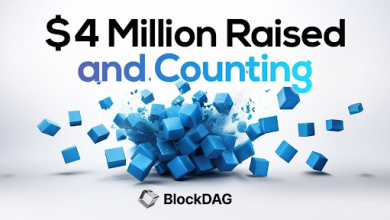The Role of Online Data Science Platforms in Promoting Learning: Insights from Kaggle Grandmaster Aravind Pillai

In the rapidly evolving field of data science, continuous learning and skill enhancement are crucial for staying relevant. Online data science platforms, such as Kaggle, provide a conducive environment for learning, collaboration, and competition. Aravind Pillai, a Kaggle Grandmaster, offers unique insights into how these platforms foster learning and growth among data science enthusiasts.
Building a Strong Foundation
Kaggle, a subsidiary of Google LLC, is one of the most prominent platforms in the data science community. It offers a variety of resources, including datasets, notebooks, and competitions, which cater to beginners and seasoned professionals. According to Aravind Pillai, Kaggle’s structured competitions and diverse datasets provide an excellent starting point for those new to data science. Participants can practice their skills on real-world problems, which helps build a strong foundation.
One of Pillai’s notable contributions is his extensive collection of public notebooks and datasets. These resources serve as valuable learning materials for aspiring data scientists. For instance, his notebooks on topics like “Bank Churn CatBoost” and “Flood Prediction Regression – LightGBM” demonstrate the application of advanced machine learning techniques in practical scenarios. By studying these notebooks, learners can gain insights into problem-solving approaches and best practices in model development.
Encouraging Practical Application
Engaging in Kaggle competitions offers priceless hands-on experience. Pillai underscores that these competitions compel individuals to apply their theoretical knowledge to practical problems, consolidating their understanding and exposing them to diverse challenges not typically encountered in a traditional academic context. For example, participants traced student learning through an online educational game in the “Predict Student Performance from Game Play” competition. Pillai’s approach, which secured a high ranking, involved the use of CatBoost, a gradient-boosting algorithm. By dissecting his methodology, learners can understand the intricacies of feature engineering, model tuning, and validation techniques.
Fostering Collaboration and Knowledge Sharing
Kaggle’s community aspect is another significant factor contributing to its educational value. Users can collaborate, share insights, and learn from each other. Pillai highlights that the discussion forums and the ability to comment on and fork notebooks create a collaborative environment that enhances learning. Pillai’s engagement in Kaggle discussions and his willingness to share his knowledge have earned him recognition as an expert in the community. His contributions help demystify complex topics and provide clear, actionable advice to fellow data scientists. This knowledge-sharing culture accelerates learning and fosters a sense of community among participants.
Achieving Recognition and Motivation
Recognition through medals and rankings is a powerful motivator for Kaggle. Achieving a high rank or earning medals can significantly boost a data scientist’s profile. Pillai’s journey to becoming a Grandmaster is a testament to the dedication and hard work required to excel. With 15 Gold Medals in Notebooks, 4 Silver Medals, and multiple Bronze Medals across competitions, Pillai’s achievements highlight the platform’s role in providing a structured path to excellence.
This recognition motivates individuals to push their boundaries and opens up career opportunities. Many companies recognize the value of Kaggle’s achievements and consider them during hiring processes. Pillai’s success story inspires those aiming to make a mark in the data science field.
Continuous Learning and Adaptation
The field of data science is ever-changing, with new techniques, tools, and methodologies emerging regularly. Kaggle’s dynamic environment helps data scientists stay updated with the latest trends. Pillai stresses the importance of continuous learning and adaptation, and Kaggle provides the perfect platform. Data scientists can keep their skills sharp and remain competitive by engaging in diverse competitions and exploring new datasets. Pillai’s participation in competitions like “Optiver—Trading at the Close” and “TalkingData AdTracking Fraud Detection Challenge” showcases his ability to adapt to different problem domains and effectively apply cutting-edge techniques.
Conclusion
Online data science platforms like Kaggle are crucial in promoting learning and skill development. Through structured competitions, practical application, collaboration, and recognition, these platforms provide a comprehensive learning experience. Aravind Pillai’s insights as a Kaggle Grandmaster highlight the immense value these platforms offer to the data science community. For aspiring data scientists, engaging with platforms like Kaggle can pave the way for continuous growth, innovation, and success in the ever-evolving field of data science.






